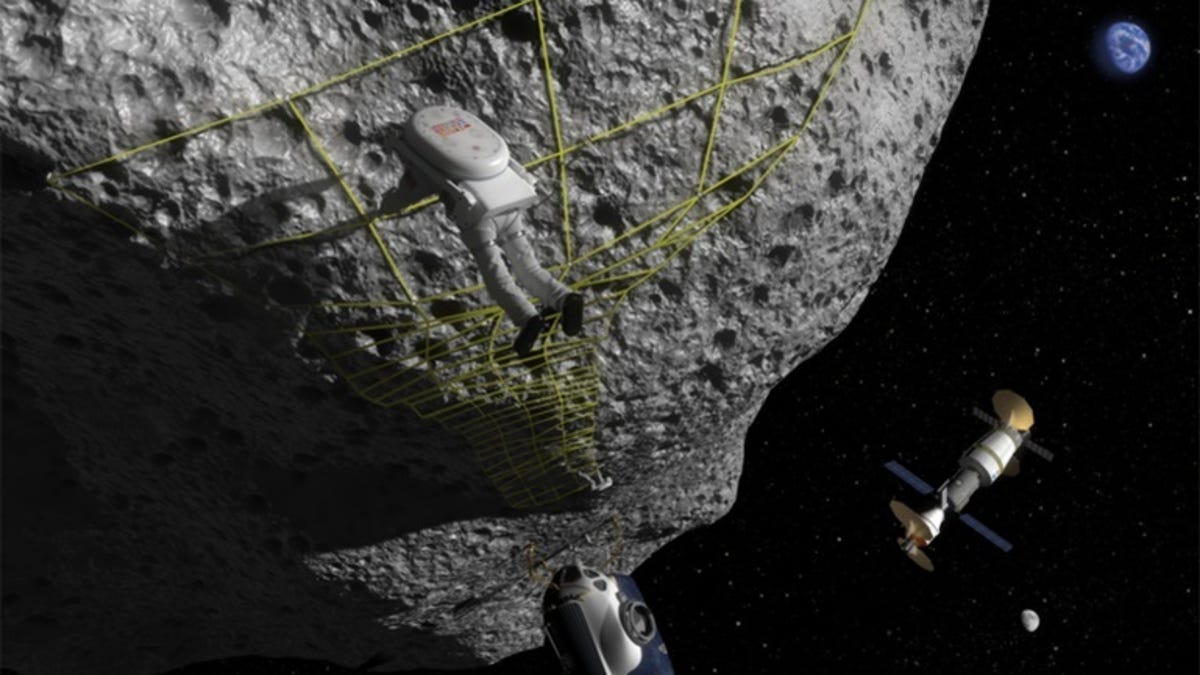NASA's plan to bag an asteroid wins place in Obama's budget
Fiscal 2014 budget also seeks to give the U.S. the capacity to again send American crews to the International Space Station, without having to rely on foreign nations' space programs.

Turns out that crazy rumor was true: NASA is planning to capture an asteroid.
The plans were included in the space agency's $17.7 billion fiscal 2014 budget, part of the new $3.7 trillion government budget proposed earlier today by President Obama.
In the budgets, about $78 million is set aside for a plan that involves sending a craft to rendezvous with what's described as a "small asteroid," and then moving the space rock into a stable orbit near the moon. Astronauts will later visit the asteroid and scoop up samples for study back on Earth.
NASA says the plan poses no threat to Earth, and indeed, that the mission would be charged with inventing "the technologies and capabilities required if in the future there is a need to move a hazardous asteroid" that might pose a threat. From the budget proposal:
Eventually, astronauts would visit the retrieved asteroid using rockets and capsules NASA is already developing, fulfilling the president's goal of sending humans to an asteroid by 2025 in a more cost-effective manner and allowing the recovery and return to Earth samples of the asteroid's rocks. In ad- dition, NASA will accelerate its efforts to detect and characterize potentially hazardous Earth asteroids, to both address the threat and clarify the opportunities these objects represent.
The world first got wind of the idea last week when Sen. Bill Nelson, D-Florida, first bruited it. White House officials confirmed the plan over the weekend.
That was the highlight of the proposed budget from NASA, whose funding would be 0.3 percent less than in 2012. The money would get allocated among the following projects:
- Development of regaining capability to send American astronauts into space, thus ending U.S. reliance on foreign providers to transport American astronauts to the International Space Station.
- More investment in space technologies with the goal of reducing the cost of space exploration.
- Funding for the Space Launch System heavy-lift rocket and Orion Multi-Purpose Crew Vehicle, two key elements for pushing the boundaries of human space exploration.
- Development of the James Webb Space Telescope, earmarked as the successor to the Hubble Space Telescope, by 2018.
- Revamp of NASA's Landsat program.
- More research to get carried out on the International Space Station.

